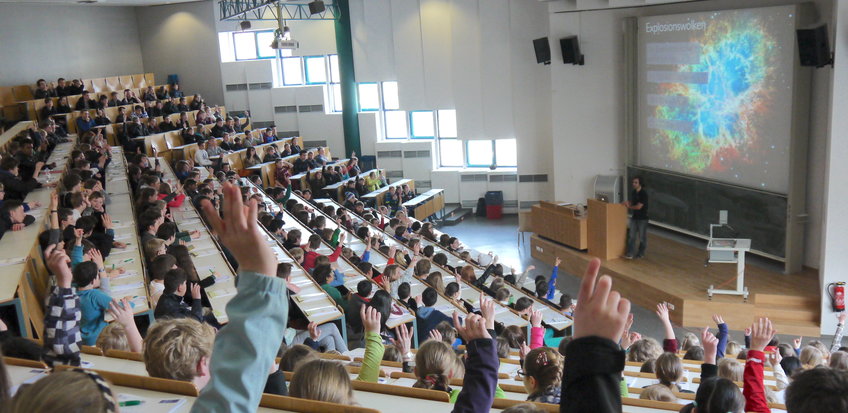
Public events
Researchers from the Max Planck Institute for Gravitational Physics are taking part in various online and in-person events for the interested public at the Potsdam and Hanover sites.

Researchers from the Max Planck Institute for Gravitational Physics are taking part in various online and in-person events for the interested public at the Potsdam and Hanover sites.